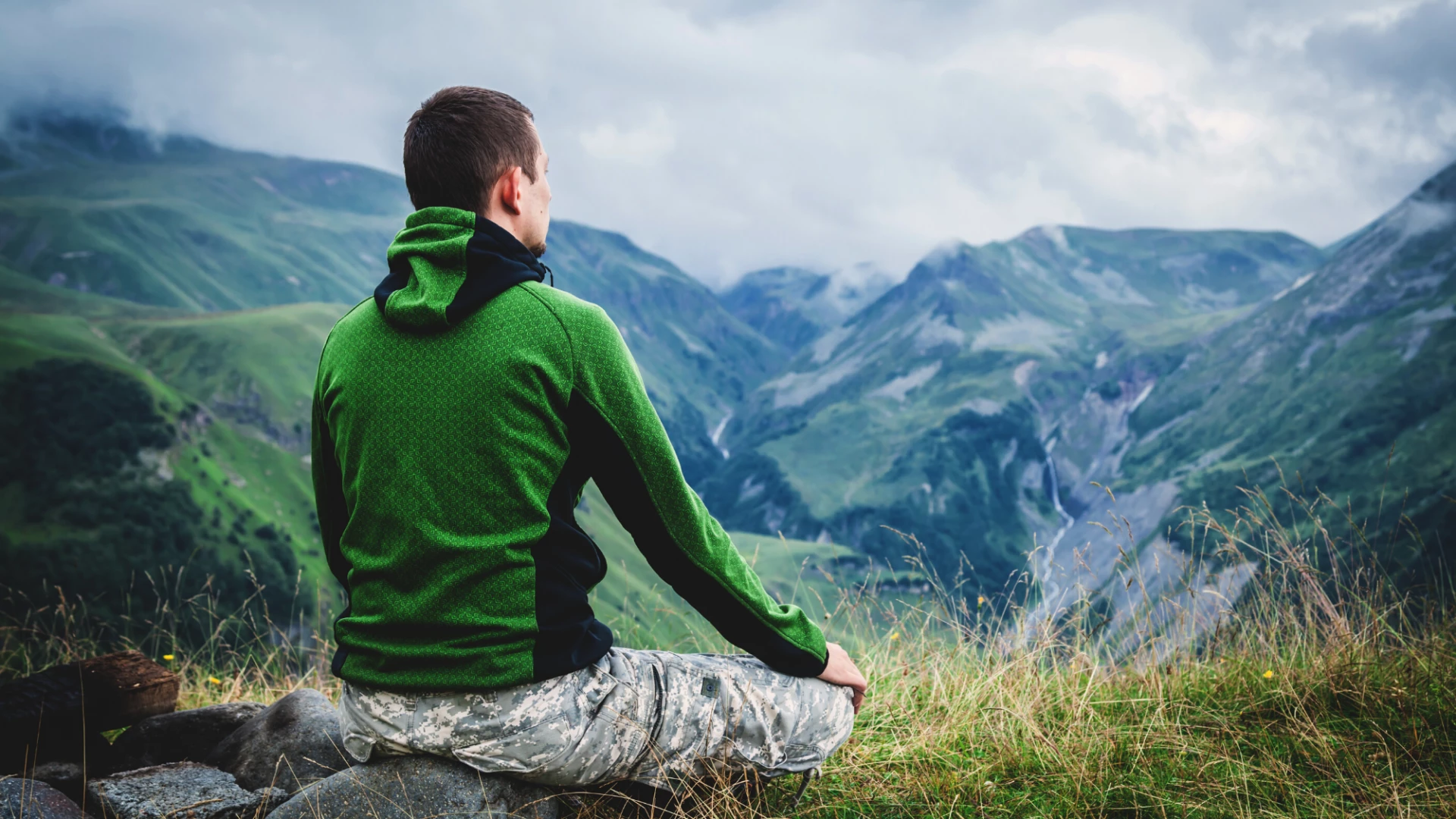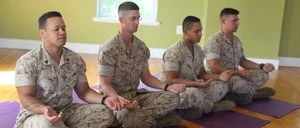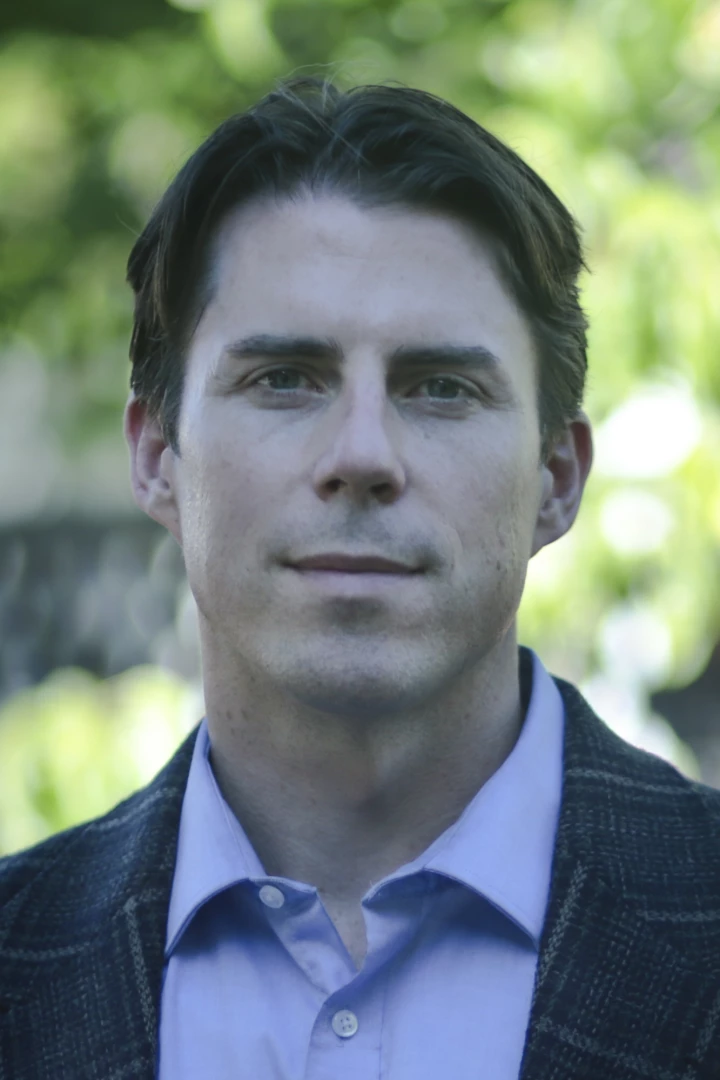Seva in the Military: Yoga as a Path of Continued Service for Veterans

There seems to be a trend among veterans who are introduced to yoga. Step 1: veteran benefits from yoga; Step 2: veteran becomes a teacher to share yoga with others. This is no coincidence; it is a conditioned response resulting from the challenges and privileges of military service.
While wearing their nations’ cloth, warriors serve—they serve their country, political ideals, religious traditions, and family back home. More than anything, they serve each other. They lean on and are relied upon by the warriors around them. They become a part of a living organism greater than themselves. Their survival is inextricably tied to the continued heartbeat of this greater self.
Military unit cohesion supports both mission effectiveness and resilience associated with deployments (1). This way of life may be so ingrained that it becomes difficult to imagine life any other way. Some may not want to leave the military for fear of losing this connection, and some may readily leave military service with the assumption life outside will not be different. All learn, however, that life outside is different.
Making the Transition to Civilian Life 
While there is a range of positive and negative experiences following the transition from the military, there is an adjustment no matter how you cut it. According to a review of research on post-military transition, many veterans experience loss of military culture and community, a loss of identity, and a loss of purpose (2).
In service of effective adjustment, especially post-deployment, the first recommendation from a systematic literature review is to focus on positive community participation/reintegration (3). Post-deployment reintegration is easier if someone is still attached to their unit because they are surrounded by people who have been through what they have been through. They have the experience of continued connection with this community.
This is not an option—as it was while on orders—upon discharge. In extreme cases, such as during Vietnam, some service members were in combat one day and were discharged in the U.S. the very next. A new form of positive community participation must fill the gap left by separation from service.
 Continued Service Through Yoga
Continued Service Through Yoga
One way positive community participation may be achieved is through volunteering in organizations that serve veterans. Volunteering in the U.S. contributes to happiness, improvements in depression, life satisfaction, wellbeing, and even physical wellness in some populations (5, 6, 9). Service can provide someone with purpose, meaning, and a felt sense of making an impact on their world. The value of such a purpose is measurable. For instance, meaning in life is associated with lower depression in veterans, while self-efficacy is associated with lower post-traumatic stress disorder (PTSD) (4).
 Serving other veterans is congruent with military culture, and military training is focused on “sticking together.” Veterans no longer have regular contact with their unit, yet volunteering may support some of the benefits of former units. For example, research findings suggest structured service after military service contributes to improved psychosocial well-being, to include decreased isolation and greater perceived social support (7, 8).
Serving other veterans is congruent with military culture, and military training is focused on “sticking together.” Veterans no longer have regular contact with their unit, yet volunteering may support some of the benefits of former units. For example, research findings suggest structured service after military service contributes to improved psychosocial well-being, to include decreased isolation and greater perceived social support (7, 8).
Volunteering with an organization that serves veterans, in addition to the above-stated benefits, may contribute to greater meaning given veterans’ military heritage of caring for fellow unit members.
Veterans learning to teach yoga to other veterans contribute to self-efficacy and meaning as they are empowered to share the yoga tools they have learned with their community post-military service. Veterans Yoga Project (VYP) empowers yoga teacher-veterans to do just that—to support recovery and resilience through yoga for fellow veterans, their families, and communities.
Veterans Yoga Project trains yoga teachers, veteran and non-veteran, as well as caregivers and licensed providers in Mindful Resilience, trauma-informed and culturally appropriate yoga for veterans. Veterans Yoga Project teachers offer more than 300 monthly yoga classes in many federal, state, community, and non-profit organizations that care for veterans. Information about the impact of the VYP community is available at VeteransYogaProject.org.
 Yoga As Action
Yoga As Action
Military veterans have engaged in selfless service on behalf of their family, country, faith, and each other. It is the honor and duty of those who have not served in the military to serve those who have. This is congruent with the principles of Seva and Karma. In honor of Veterans Day, please take the time to share your abilities in the service of our veterans.
You can serve as a volunteer for non-profits that serve veterans, an active and non-judgmental listener to someone’s story, an engaged and informed voter regarding policies that affect our military and veterans, or a financial supporter of a non-profit organization that is serving veterans and their families.
One easy and powerful way to give back to those who serve is to participate in our Veterans Gratitude Week (November 8-18). If you are a yoga teacher, offer a donation-based class, and invite your community to practice with an attitude of gratitude for our veteran and military families. If you are grateful for your freedom to practice yoga, attend one of these classes.
Last year, thousands of people, just like you, attended more than 500 classes across all 50 U.S. states and three countries. Join us as we strive for more than 600 classes this Veterans Gratitude Week. Donations fund yoga classes and training for veterans through the Veterans Yoga Project. We collectively benefit from such service even as we are not attached to the outcomes.

Tim Avery, PsyD, is a licensed clinical psychologist in California, a registered yoga teacher, and a U.S. Navy veteran. He recently completed a joint VA/Stanford postdoctoral fellowship with an emphasis on complementary and integrative health approaches to PTSD and chronic pain, as well as evaluation of a clinical yoga program. In his latest role, he trains providers in the use of the VA’s extensive mental health mobile apps suite. Tim is Director of Program Evaluation for Veterans Yoga Project.
References
1. Anderson, L., Campbell-Sills, L., Ursano, R. J., Kessler, R. C., Sun, X., Heeringa, S. G., . . . Stein, M. B. (2019). Prospective associations of perceived unit cohesion with post-deployment mental health outcomes. Depress Anxiety. doi:10.1002/da.22884
2. Romaniuk, M., Kidd, C. (2018). The Psychological Adjustment Experience of Reintegration Following Discharge from Military Service: A Systemic Review. Journal of Military and Veterans’ Health, 26(2), 60-73.
3. Sherman, M. D., Larsen, J., & Borden, L. M. (2015). Broadening the focus in supporting reintegrating Iraq and Afghanistan veterans: Six key domains of functioning. Professional Psychology: Research and Practice, 46. doi:10.1037/pro0000043
4. Blackburn, L., & Owens, G. P. (2015). The Effect of Self Efficacy and Meaning in Life on Posttraumatic Stress Disorder and Depression Severity Among Veterans. Journal of Clinical Psychology, 71(3), 219-228. doi:10.1002/jclp.22133
5. Borgonovi, F. (2008). Doing well by doing good. The relationship between formal volunteering and self-reported health and happiness. Social Science & Medicine, 66, 2321-2334. http://dx.doi.org.laneproxy.stanford.edu/10.1016/j.socscimed.2008.01.011
6. Jenkinson, C., Dickens, A., Jones, K., et al. (2013). Is volunteering a public health intervention? A systematic review and meta-analysis of the health and survival of volunteers. BMC PUBLIC HEALTH, 13(773).
7. Lawrence, K. A., Matthieu, M. M., & Robertson-Blackmore, E. (2019). Civic Service as an Intervention to Promote Psychosocial Health and Implications for Mental Health in Post-9/11/01 Era Women Veterans. J Women’s Health (Larchmt). doi:10.1089/jwh.2018.7338
8. Lawrence, K. A., Matthieu, M. M., & Robertson-Blackmore, E. (2017). Completion of a Veteran-Focused Civic Service Program Improves Health and Psychosocial Outcomes in Iraq and Afghanistan Veterans With a History of Traumatic Brain Injury. Military Medicine, 182(7), e1763–e1770. https://doi-org.laneproxy.stanford.edu/10.7205/MILMED-D-16-00150
9. Burr, J., Han, S., Lee, H.J., Tavares, J., Mutchler, J. (2018). Health Benefits Associated With Three Helping Behaviors: Evidence for Incident Cardiovascular Disease, The Journals of Gerontology: Series B, 73(3), 492–500, https://doi-org.laneproxy.stanford.edu/10.1093/geronb/gbx082


 Yoga As Action
Yoga As Action 